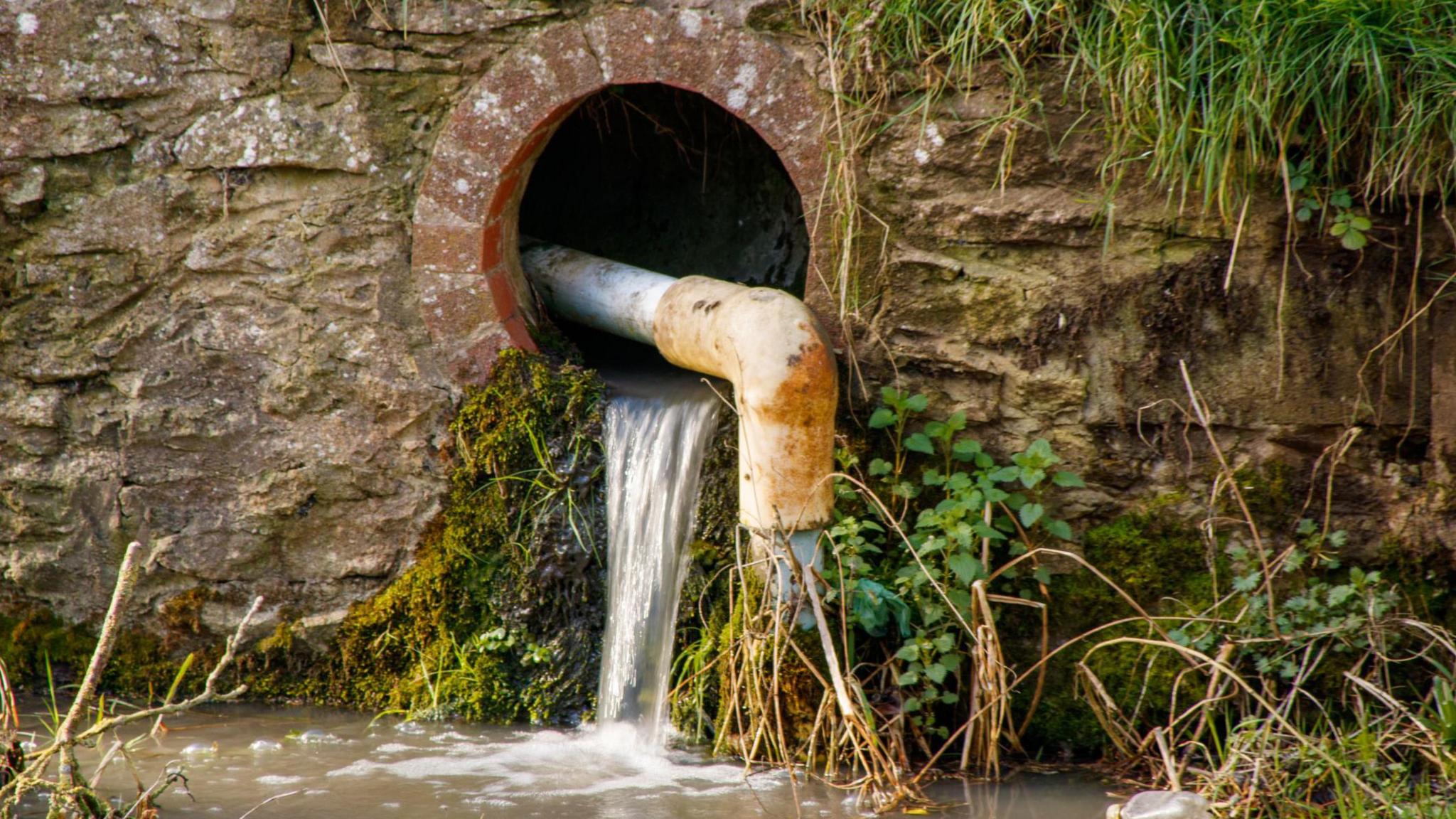≥…»ÀøÏ ÷ investigation: Six thousand illegal sewage spills could have happened in 2022

- Published
Information gathered by the ≥…»ÀøÏ ÷ suggests that every big water company in England illegally released raw sewage into rivers and seas.
The investigation into the water company's data - that's information - suggests that the companies released sewage 6,000 times into rivers and seas when it wasn't raining.
Water companies are allowed to release some raw sewage into waterways if it's raining very heavily.
However, when the weather is dry, releasing raw sewage is illegal.
The firms disagree with the ≥…»ÀøÏ ÷'s findings.
They said the data shared with England's Environment Agency was "unverified" and "preliminary", and they also disagree what what the ≥…»ÀøÏ ÷ believe to be a dry spill.
Background to this story:
- Published6 September 2023
- Published19 May 2023
- Published28 January 2023
How do we deal with sewage?
Hayley explains what sewage is, and how it is disposed of
Sewage is the waste that comes from our toilets, baths, showers, and sinks.
It goes through a network of pipes and ends up in a sewage treatment works. This is where the wastewater is cleaned, so it can safely go back into our rivers and seas.
Sometimes, if it's raining a lot, sewage treatment works can become overwhelmed with wastewater and sewage.
This is a wastewater treatment plant in London
When this happens, water companies have permission to release some raw sewage - that's sewage that hasn't been treated yet - back into rivers and seas.
If the water companies didn't do this, we could end up with sewage coming back into our homes from the system backing up and overflowing.
However, it is against the law for water companies to release raw sewage if it's not raining.
What's happened now?
The water that comes out of your taps is managed by a water company
Adults pay money to water companies to get clean, safe water in their homes.
Which water company you use depends on which area you live in.
The release of untreated sewage is thought to have happened during a heatwave in the UK in 2022.
This information follows another ≥…»ÀøÏ ÷ investigation which happened last year, and found that three big water companies illegally released sewage in 2022.
Illegally releasing sewage into rivers and seas when it's not raining is known as a 'dry spill'.
When raw sewage is released into water, it can be dangerous for plants, animals, and nearby humans
The previous investigation said that Thames Water, Wessex Water and Southern Water all possibly had dry spills during 2022.
The other big water companies said they would not share their information with the ≥…»ÀøÏ ÷.
These companies were Anglian Water, Northumbrian Water, Severn Trent, South West Water, United Utilities and Yorkshire Water.
They said this was because of an ongoing investigation from the Environment Agency - which is a section of the government who's job it is to protect and care for the environment.
Water companies have to report any sewage spills to the environment agency, which investigates them.
In January this year, the Environment Agency told the ≥…»ÀøÏ ÷ that these other companies could hand their data on dry spills over.
Spill data vs rainfall data
The ≥…»ÀøÏ ÷ looked at the information they had from water companies about when sewage spills happened. They compared it to information from the Met Office - which monitors UK weather - about when it was very rainy throughout the year.
If the sewage spills lined up with the rainy weather, then it was likely that the spills would have been legally allowed to happen.
However, information gathered during the investigation suggested that there could have been over 200 days of dry spills and some of these could have happened on very hot, dry days in the summer.
What have people said about the investigation?
The water companies involved in the new ≥…»ÀøÏ ÷ investigation - Anglian Water, Northumbrian Water, Severn Trent, South West Water, United Utilities and Yorkshire Water - said the investigation had errors and was unverified.
Anglican Water disagreed with all of the dry spilling examples and the other companies disagreed with some of them.
The main reason the companies gave was that their sewage spill monitors incorrectly recorded spills, because they didn't work properly.
Water companies use monitors to check how much sewage is being released back into our rivers and seas
What happens next?
England's water companies had promised that in 2025 they will publish real-time information about sewage spills. This means people will be able to know when spills happen, and where they are.
The ≥…»ÀøÏ ÷ responded to the water companies' claims that the investigation was unfair. It only considered a sewage release as a 'dry spill' if it happened in an area where they hadn't been rain for four days.
The Environment Agency also said it was "not surprised" by the results.
